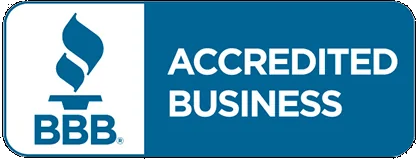

Exploring Tax Benefits: Are Mortgage Closing Costs Eligible for Deductions?
Learn which mortgage closing costs may be tax-deductible, but always consult a certified tax professional for personalized guidance on your situation.
For homeowners or potential buyers, it's crucial to comprehend the financial aspects of mortgage transactions. One of the most common questions is whether mortgage closing costs are tax deductible. This article aims to provide you with the necessary information to help you navigate the world of taxes and mortgages.
Understanding Mortgage Closing Costs:
Before diving into the tax implications, let's briefly cover what mortgage closing costs are. Closing costs refer to the fees and expenses associated with finalizing a mortgage loan. These costs include charges for services provided by various parties involved in the mortgage process, such as appraisers, title companies, attorneys, and lenders. Examples of closing costs include:
Loan Origination Fees:
These are fees charged by a lender for processing and underwriting the loan. Loan origination fees can be a significant expense when obtaining a loan. It is important that you understand what these fees are and how they are calculated to ensure that you are not overpaying on your mortgage loan. Now, let's explore further details on loan origination fees:
- Loan origination fees are typically expressed as a percentage of the total loan amount. This percentage can vary depending on the lender, the type of loan, and other factors. For example , “1 point” would be 1% of your total financed loan amount. *
- Some mortgage brokers and lenders may offer the option for you to pay a higher interest rate in exchange for a lower origination fee, or vice versa. It is important to weigh the pros and cons of each option to determine which is the best choice for your situation. If you plan on keeping your loan for an extended period, consider paying points to your lender. This can significantly decrease the overall interest you will be charged over the life of the loan.
- Loan origination fees are typically due at closing, which means that they must be paid upfront before the loan is disbursed. If you are unable to pay the origination fee upfront, there may loan products that allow you to roll it into the loan balance, but this will increase your overall loan costs.
- Some types of loans, such as government-backed loans like FHA and VA loans, have limits on the amount of loan origination fees that can be charged. Make sure to research the specific rules for the type of loan you are considering.
- If you are unsure about the loan origination fees or other costs associated with obtaining a loan, don't hesitate to ask your mortgage broker for clarification. Onshore Mortgage, LLC. will be transparent about all fees and costs associated with your loan.
Appraisal Fees:
The cost of having a professional appraiser assess the property's value.Appraisal fees is an expense that property owners incur during the home buying and refinance process. This cost is the only cost that is POC (paid outside of closing) with Onshore Mortgage, LLC. Here are a few things you should know about appraisal fees:
- The cost of an appraisal varies based on several factors, including the type of property, its location, and the appraiser's level of expertise. For example, government loans like FHA and VA , as well as multi-family homes with 2-4 units, generally require a more expensive appraisal compared to a single-family home.
- Appraisal fees are typically paid by the buyer during the purchase process or clients applying for a mortgage refinance.
- An appraisals' objective is to establish a property's fair market value. This is important for both buyers and sellers, as it ensures that the property is priced fairly. A bank will only lend on the appraised value of a home.
- During an appraisal, the appraiser will inspect the property and compare it to similar properties in the area. They will also take into account any unique features or upgrades that may affect the property's value.
- To ensure objectivity, appraisals will be conducted by an independent third-party AMC (appraisal management company).
Title Insurance:
Title insurance is an important aspect of the real estate industry that protects both the lender and homeowner from any potential disputes related to property ownership. Here are some key points to consider about title insurance:
- Title insurance is typically purchased during the closing process of a real estate transaction and is usually a one-time fee paid by the buyer.
- The purpose of title insurance is to provide protection against any future claims or disputes related to the property's ownership, such as liens, encumbrances, or conflicting wills or trusts.
- Title insurance is classified into two types: lender's title insurance and owner's title insurance. While both provide vital protection, they serve different purposes.
- Lender's title insurance is required by most mortgage lenders to protect their investment in the property. It covers the outstanding balance on the mortgage and lasts until the loan is paid off.
- Although not mandatory, it's highly recommended that homeowners opt for Owner's title insurance. It provides protection for the full value of the property and lasts for as long as the homeowner owns the property.
- Title insurance does not cover any issues that arise after the policy is issued, such as zoning violations or environmental hazards.
- In order to obtain title insurance, a title search is conducted to ensure that there are no outstanding liens or claims against the property. The policy is then issued based on the findings of the title search.
- While title insurance may seem like an added expense, it can provide peace of mind and protection from potential legal disputes or financial losses related to property ownership.
Attorney Fees:
When it comes to legal proceedings, attorney fees can quickly add up. It's important to understand the legal fees for reviewing and preparing documents, what these fees cover and how they are calculated. To stay on track, remember these important points:
- Legal fees can vary widely depending on the complexity of the case, the experience of the attorney, and the geographic location.
- Attorneys on real estate transactions typically charge a flat fee for their services, which can range from a few hundred dollars to several thousand dollars.
- In addition to the closing, attorneys may also charge a flat fee for a Purchase and Sales review. Onshore Mortgage, LLC. has many attorney referral partners who will review the purchase and sales at not additional cost.
- While the closing attorney represents the lender, borrowers have the option to obtain personal representation at their own expense.
Ultimately, the cost of legal representation can be a significant expense, but it's important to remember that it's an investment in protecting your legal rights and interests. By carefully selecting an attorney and understanding their fee structure, you can ensure that you are getting the best possible representation at a fair price.
Recording Fees:
Recording fees are an essential aspect of any real estate transaction that involves the filing of official documents with government offices. These fees are set by the respective government bodies and are subject to change periodically. Here are some key points to keep in mind regarding recording fees:
- Recording fees vary by location: Each state, county, and municipality may have its own set of recording fees.
- Fees are based on the type of document: The fees for recording documents vary depending on the type of document being filed. For instance, fees for recording a deed may differ from those for recording a mortgage or a lien.
- Fees are typically based on the number of pages: Most recording fees are based on the number of pages in the document being filed. The more pages a document has, the higher the recording fee is likely to be.
- Recording fees are typically paid by the borrower: In most cases, the party that files the document is responsible for paying the recording fee.
- Recording fees are non-refundable: Once a document has been filed and the recording fee paid, the fee is non-refundable. It is important to ensure that all documents are accurate and complete before filing to avoid having to pay additional fees for corrections or amendments.
Overall, recording fees are an important consideration for anyone involved in a legal transaction that requires the filing of official documents with government offices. It is essential to understand the applicable fees and any associated costs to ensure that the transaction is completed accurately and efficiently.
Prepaid Interest and Property Taxes:
Prepaid interest and property taxes are commonly associated with the purchase of a home or property. These payments are typically made in advance and can be included in the closing costs of a mortgage loan. Here are some key points to keep in mind regarding prepaid interest and property taxes:
- Prepaid Interest: When you take out a mortgage loan, the interest on the loan accrues daily. If you close on your loan mid-month, you will need to pay interest from the day of closing until the end of the month. This is known as prepaid interest. Paying prepaid interest ensures that the lender is compensated for the interest that they would have earned during that time period.
- Property Taxes: Property taxes are assessed by local governments and are based on the value of the property. Generally, these taxes are payable either quarterly or semi-annually. However, when you purchase a home, you may have to pay a prorated amount of property taxes upfront, depending on when the taxes are due. This is also known as prepaid property taxes.
- Escrow Accounts: Many lenders require that you set up an escrow account when you take out a mortgage loan. This account is used to hold funds for property tax and insurance payments. Each month, you make a payment into the escrow account along with your mortgage payment. When your property taxes or insurance premiums are due, the lender will use the funds in the escrow account to make the payment on your behalf.
In summary, prepaid interest and property taxes are important components of a mortgage loan. They ensure that the lender is compensated for the interest they would have earned and that property taxes are paid in a timely manner. If you have questions about prepaid interest or property taxes, it's important to discuss them with your lender or a financial advisor.
Tax Deductibility of Mortgage Closing Costs:
The IRS has specific rules regarding which closing costs can be considered tax deductible. While many homeowners hope to deduct all closing costs, the reality is a bit more nuanced. Here's what you need to know:
Deductible Points:
Points, also known as loan origination fees, paid to the lender at closing can be tax deductible. A point is typically equal to 1% of the loan amount. To qualify for the deduction, the points must be directly tied to the interest on the loan, and the loan must be used to purchase or improve your primary residence.
Interest and Property Taxes:
While not exactly closing costs, the interest you pay on your mortgage loan and property taxes are generally tax deductible. These deductions can provide significant benefits over the life of your loan.
Other Closing Costs: Unfortunately, most other closing costs are not directly tax deductible. However, some costs might increase the cost basis of your home, which could have implications when you sell the property. It's always a good idea to seek personalized advice from a tax professional.
Consult Your Tax Professional:
While this article provides an overview of the tax deductibility of mortgage closing costs, every individual's financial situation is unique. It's important to note that tax laws and regulations often change over time. To get accurate and personalized advice, Onshore Mortgage strongly suggests you consult a certified tax professional who can guide you through the complexities of tax deductions related to mortgage transactions.
In conclusion, some mortgage closing costs can indeed be tax deductible, but it's important to understand the specific rules and limitations set forth by the IRS. By staying informed and seeking expert guidance, you can make well-informed decisions that align with your financial goals and circumstances.

Latest Posts


Grant R. Menard MLO NMLS# 17308
CLICK HERE
Onshore Mortgage

Massachusetts Division of Banks NMLS#MB1995582
CLICK HERE
The information contained in this site has been prepared by an independent third party and is distributed for educational purposes only. This is designed to give helpful tips on the mortgage process and is not intended to give legal advice.
Information is considered reliable but not guaranteed. This is not a pre-qualification, pre-approval, loan approval or commitment to lend. We arrange but do not make loans.
© 2020 Onshore Mortgage, LLC. all rights reserved.


.webp)
